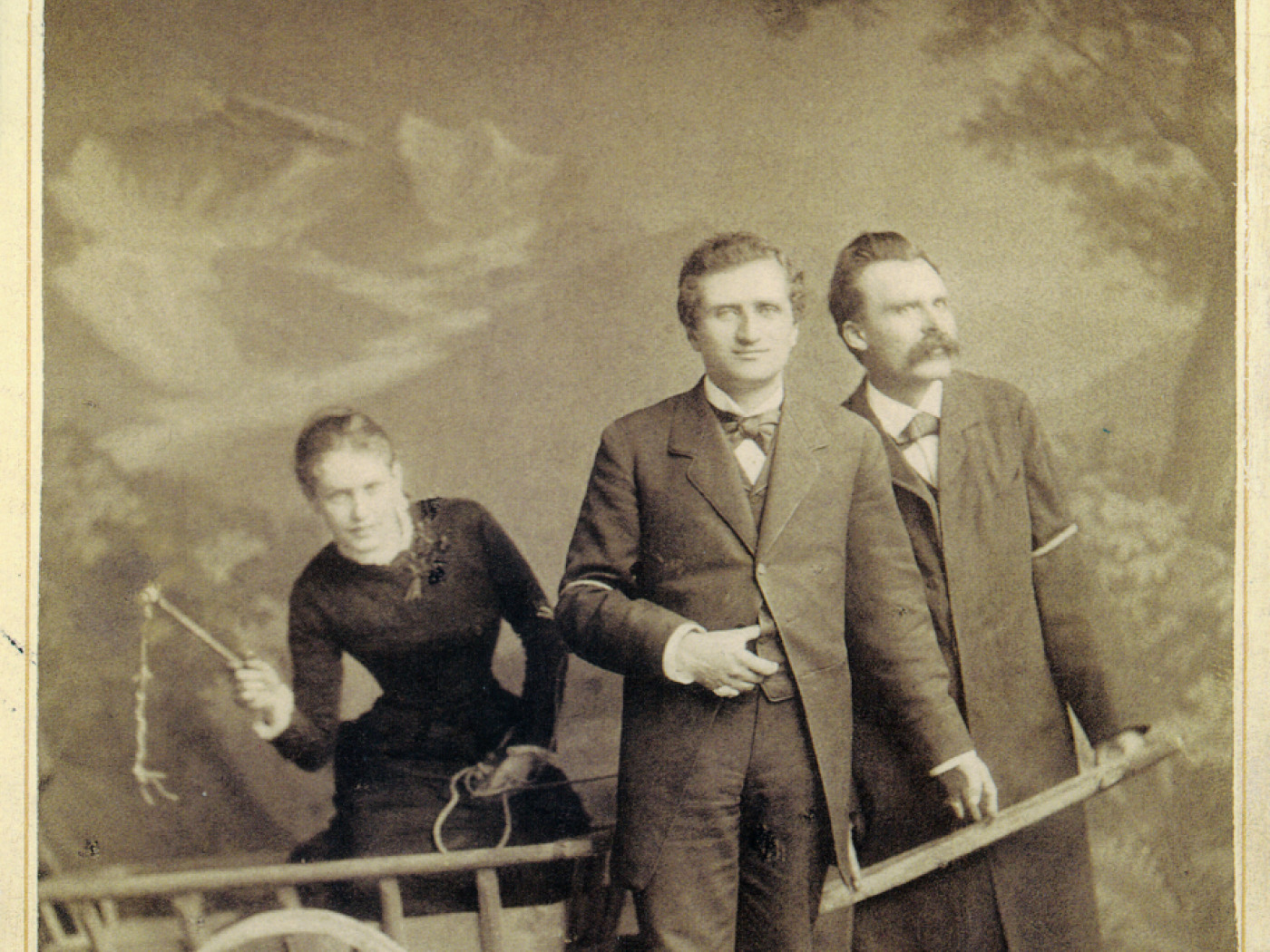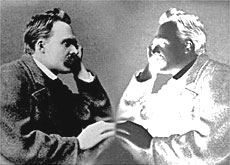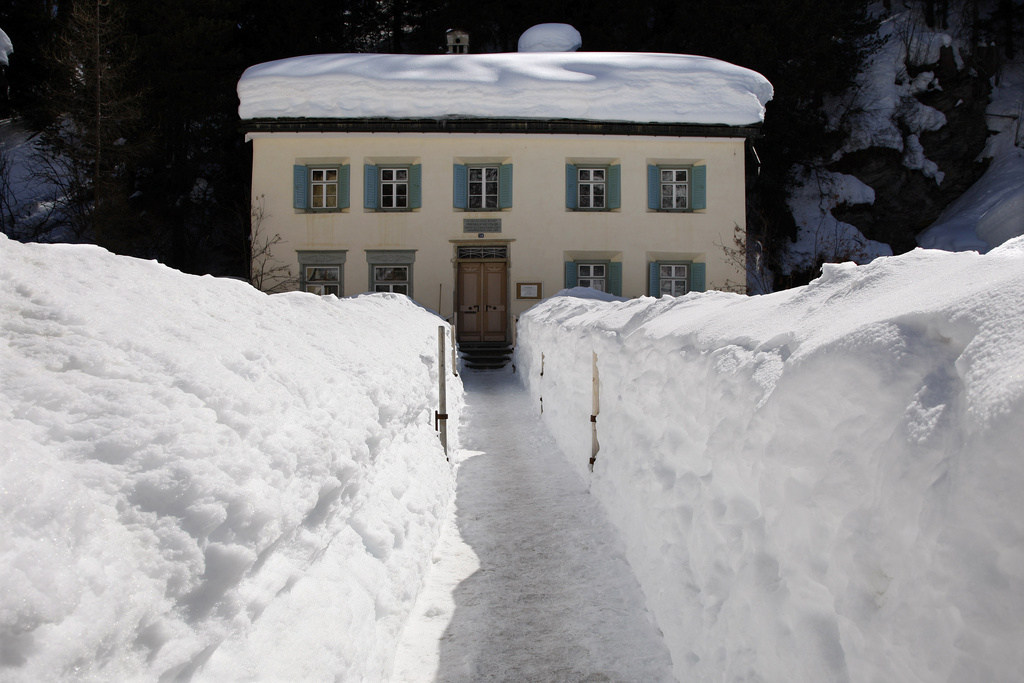
University of Basel to mark 125th anniversary of Nietzsche’s death

This month the University of Basel is celebrating the German philosopher Friedrich Nietzsche, who was a professor there from 1869 to 1879. August 25th marks the 125th anniversary of his death.
+Get the most important news from Switzerland in your inbox
Two events and a small exhibition with original documents are planned, the University of Basel said on Monday. Nietzsche worked as a professor of Greek language and literature at the University of Basel and at the Basel Pädagogium educational institution from 1869 to 1879. During that time, he wrote famous works such as The Birth of Tragedy, Untimely Reflections and Human, All Too Human.
According to the press release, the documents preserved in Basel have been the basis for a “factual and sober examination of the life and work of the controversial philosopher” since Nietzsche’s derangement in 1889. This is in contrast to the “glorifying and politically instrumentalising” tradition of his sister and estate administrator Elisabeth Förster-Nietzsche in Weimar.

More
A sea of tranquillity and philosophy
Exhibition with original documents
The main exhibition is intended to provide an insight into the life, thoughts and work of the world-famous intellectual in Basel. The Basel University Library holds manuscripts, letters and personal documents, all of which can be viewed digitally. The state archives also keep his medical records from 1889, which are available to the public in digitised form.

More
Writers who created imaginary Graubünden
On the anniversary of the philosopher’s death, German scholar David Marc Hoffmann will present the importance “Basel Nietzsche” using selected original documents.
At another event in November, Hoffmann will discuss Nietzsche’s influence on films, for example those by Alfred Hitchcock, Roman Polanski and Martin Scorsese.

More
Basel remembers former professor, Nietzsche
Translated from German with DeepL/sb
We select the most relevant news for an international audience and use automatic translation tools to translate them into English. A journalist then reviews the translation for clarity and accuracy before publication.
Providing you with automatically translated news gives us the time to write more in-depth articles. The news stories we select have been written and carefully fact-checked by an external editorial team from news agencies such as Bloomberg or Keystone.
If you have any questions about how we work, write to us at english@swissinfo.ch.

In compliance with the JTI standards
More: SWI swissinfo.ch certified by the Journalism Trust Initiative































You can find an overview of ongoing debates with our journalists here . Please join us!
If you want to start a conversation about a topic raised in this article or want to report factual errors, email us at english@swissinfo.ch.